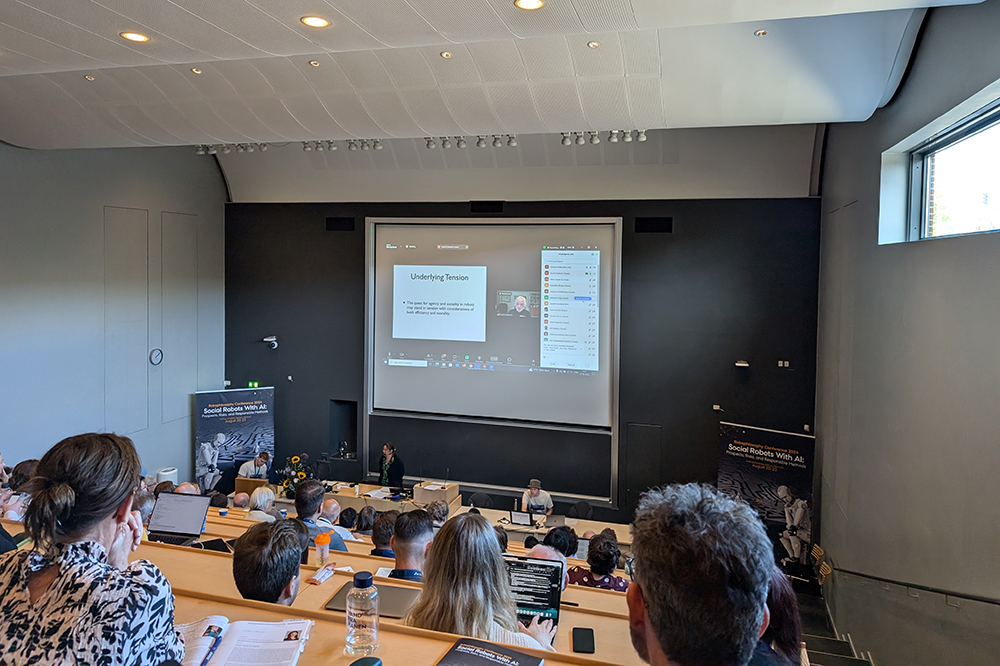Chatbots, voice assistants, and robots – both programmable machines and social robots – had been used in learning for decades. At the GROUND 2025 Workshop on 30 June 2025, held as part of the IAS 2025 in Genoa, Italy, Prof. Dr. Oliver Bendel from the FHNW School of Business in Switzerland presented his own projects from the past 15 years. Some of his chatbots and voice assistants, such as GOODBOT, BESTBOT, and SPACE THEA, recognized user problems and responded appropriately. They demonstrated empathy and emotion. Pepper had been used as an educational application for children with diabetes, and Alpha Mini served as an educational tool in elementary schools. Chatbots for dead, endangered, and extinct languages such as @ve, @llegra, and kAIxo were designed to be integrated into learning environments for all age groups. In recent years, the technology philosopher and information systems expert primarily used GPT-based systems such as Social Robotics Girl and Digital Ethics Girl in his courses. These systems were capable of receiving and answering questions from multiple students simultaneously, even when the questions were asked in different languages. Thanks to prompt engineering and retrieval-augmented generation (RAG), they became specialists in their respective domains. In his keynote “Robots, chatbots, and voice assistants in the classroom”, Oliver Bendel asked how chatbots, voice assistants, and social robots would be designed as adaptive systems for multi-user settings in the future. These capabilities were considered especially important in classroom environments (Photo: Giulia Pusceddu).
Keynote by David Chalmers
On the second day of Robophilosophy 2024, David Chalmers, an Australian philosopher and cognitive scientist, gave a keynote speech entitled “Does Generative AI Extend the Mind?”. From the website: “Prof. Chalmers is known worldwide, also outside of philosophy, for his contributions to consciousness research in ‘The Character of Consciousness’ (2010), and in particular for identifying more clearly than anyone the tasks for a philosophical account of consciousness (‘the hard problem’ of consciousness). Since recent advances in AI bring Chalmers’ thought experiment of ‘philosophical zombies’ closer to reality, in his current research he combines philosophy and a longstanding interest in AI for the exploration of the status of virtual reality … and the likelihood of creating artificial systems that fulfil the criteria of consciousness.” (Website Robophilosophy 2024) A key statement was: “As social AI systems become increasingly agent-like, they will decreasingly extend the mind …” The final statement was: “The quest for agency and sociality in robotsmay stand in tension with considerations of both efficiency and morality.” The audience applauded the witty and humorous talk.

